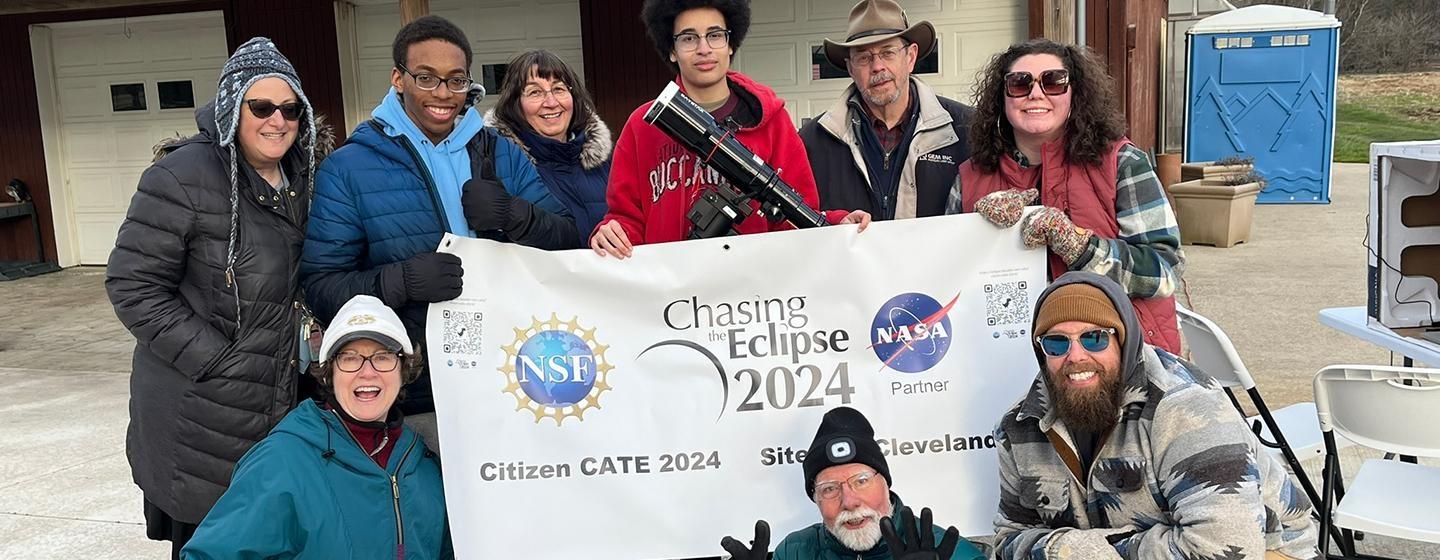As the supervisor for science and health K–12 for Akron Public Schools, I was drawn into the Citizen CATE project by surprise. One of our scholars casually mentioned that his science teacher was connecting him with a NASA eclipse initiative. Before I knew it, I was co-leading the project — partnering with Gwen Perry, the leader of Team 23, and our leader, Marcia Long of CATE Team 24 from Kent, Ohio — with less than a month to prepare.
Not only were we three women from different parts of Ohio and different stages in life, but the scholars from our schools likely never would have interacted with members of our Team 24 otherwise. What we quickly discovered was that we had more in common than we expected. Seeing how the love of science could excite people of all ages and backgrounds made this a very special team. We even came together afterward to watch the documentary premiere at our Firestone CLC Planetarium — another full-circle moment that underscored just how meaningful this experience was for all of us.
Thanks to the dedication of Academy Coach Clayton Cundiff at Garfield, who helped with transportation, we were able to bring together an incredible team of scholars: Elijah Fleming and Ogheneovo Erho from Garfield CLC, Stella Cundiff from Akron Early College, and Edward McHenry III from Buchtel CLC.
Participating in Citizen CATE was a transformative experience for our scholars. It wasn’t just about witnessing a once-in-a-lifetime solar eclipse — it was about doing science. They were trained in data collection, used advanced equipment, collaborated with scientists from across the country, and contributed to a national research effort. For many of them, this was their first experience with field science and real inquiry. You could see their confidence grow as they realized their work mattered. It sparked curiosity, pride, and for some, a sense of purpose in science they hadn’t felt before.
To now have this story shared through PBS Western Reserve means so much — not just to me as an educator, but to our entire community. Our scholars will see themselves reflected in a public, regional story of science and achievement. That visibility is powerful. It sends a message to scholars across Northeast Ohio that they, too, can be part of something big, meaningful, and scientific.
Sharing experiences like this is vital because it helps shift the narrative of who belongs in science. Too often, scholars — especially those from historically underrepresented backgrounds — don’t see themselves in these kinds of roles. Projects like Citizen CATE and platforms like PBS help widen the lens. They show that science is not confined to labs or textbooks — it can be hands-on, local, and accessible.
This eclipse may have lasted only a few minutes, but its impact on our scholars will last a lifetime. And now, thanks to this documentary, that impact has a chance to ripple even further.



